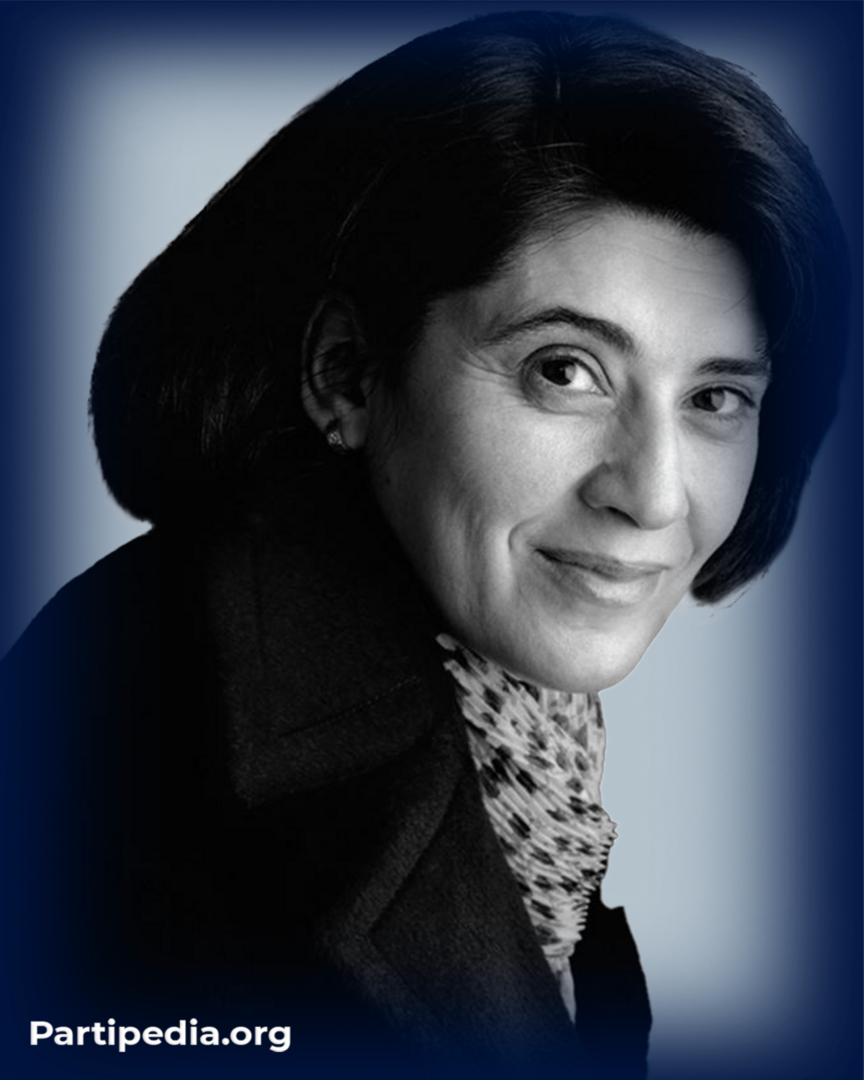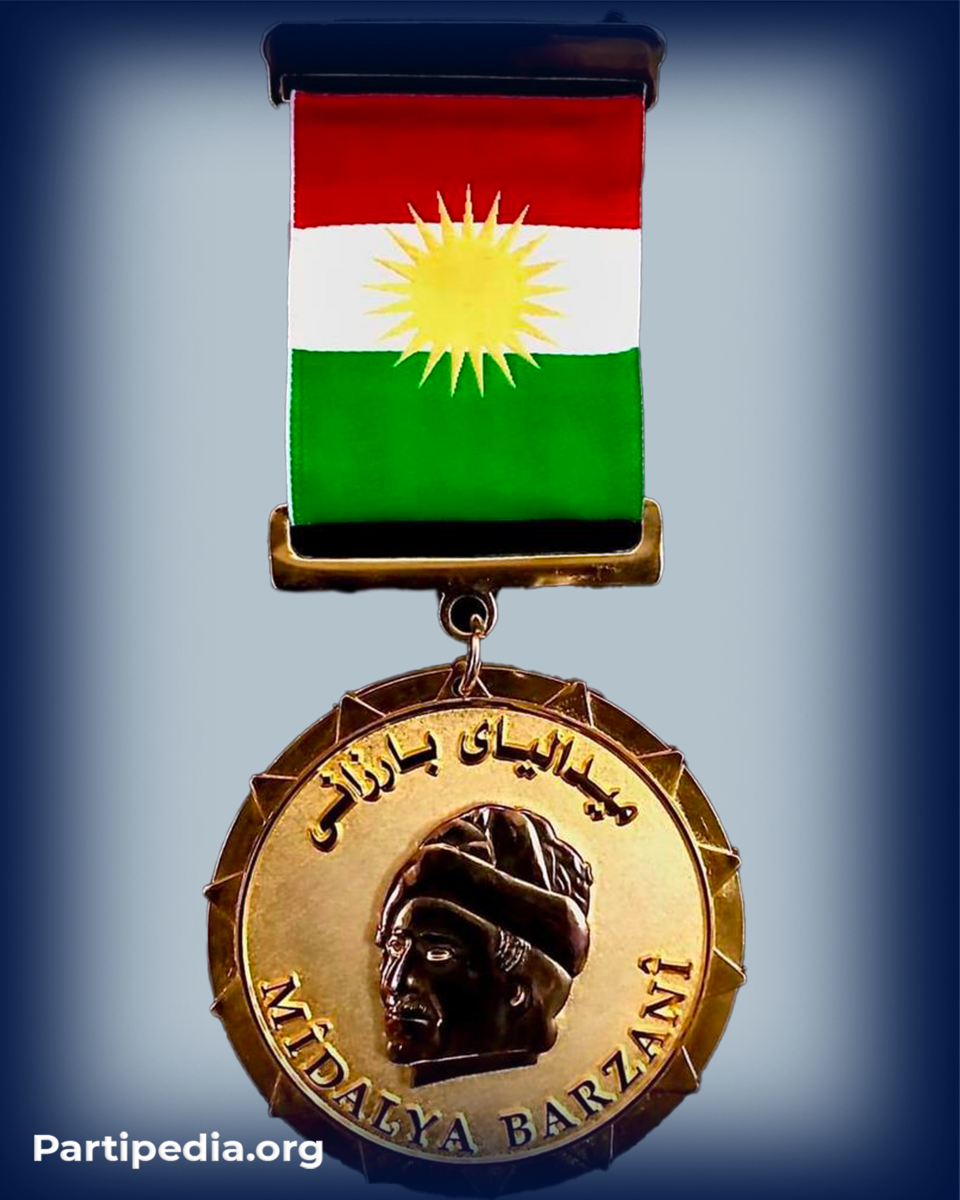Leyla Fakhreddin Dağlı, widely known as Leyla Zana, was born on May 3, 1961, in the village of Bakhçe, Farqin, in Amed province, North Kurdistan. She is a Kurdish politician who was imprisoned for 10 years for speaking Kurdish in the Turkish parliament. At the age of 21, Leyla Zana married Mahdi Zana, the former mayor of Amed. She is a mother of two and currently holds no official government or party position. Following her marriage, Leyla Zana undertook the challenge of teaching herself to read and write, demonstrating her dedication to personal growth and education despite the constraints of her circumstances.
In 1987, Leyla Zana was instrumental in founding the Human Rights Association, headquartered in Amed, reflecting her commitment to advancing human rights. The following year, in 1988, she established and became the editor of the influential newspaper *Yeni Ulke*, which played a crucial role in addressing and publicizing critical issues affecting the Kurdish community.
In 1991, Leyla Zana was elected to represent the Amed constituency on the Social Democratic Party (SHP) list. Her swearing-in ceremony drew considerable attention and controversy when she wore a distinctive necklace of yellow, red, and green—colors symbolic of Kurdish identity—and greeted attendees in Kurdish. This bold expression of her cultural heritage was met with significant criticism, highlighting the tense political climate surrounding Kurdish rights and representation. "I am proud to swear to uphold the constitution, to champion the brotherhood and equality of the Turkish and Kurdish nations, and to protect the independence of our country, the unity of our people, and the sovereignty of all," she declared. "I take this oath for the brotherhood of the Kurdish and Turkish peoples," she added in Kurdish.
In 1994, Leyla Zana, along with Ahmet Türk, Orhan Doğan, Khatib Dijle, Şerafettin Elçi, and Mahmut Alınak, had her parole revoked following a speech delivered in the United States. Despite their denial of any affiliation with the PKK, Leyla Zana responded to the charges by stating, “This is a conspiracy, and it is clear what I stand for. If these claims were true, I would have taken full responsibility myself, but I do not accept these accusations. I have defended democracy, human rights, and the brotherhood between Kurds and Turks, and I will continue to do so as long as I live.” Nevertheless, the court dismissed her defense and convicted her of PKK membership and propaganda. She was sentenced to 15 years in prison, during which she continued her advocacy for peace and human rights.
In 2001, the European Court of Human Rights (ECHR) ruled to overturn the prison sentences of four Kurdish Members of Parliament, including the prominent Leyla Zana. Despite this decisive ruling, Turkey initially refused to acknowledge the court's decision. Persistent and mounting pressure from the ECHR and international human rights advocates eventually led to Leyla Zana's release on June 8, 2004, after enduring 10 years of imprisonment.
Leyla Zana subsequently served three additional terms in the Ağrı constituency. However, during her last term, she was expelled from parliament for not taking the oath of office as prescribed. Throughout her career, she has been honored with more than six international awards in recognition of her relentless efforts to promote democracy in Turkey and advocate for Kurdish rights. Consequently, her work has garnered significant international acclaim and has highlighted the ongoing struggle for human rights and political freedom in the region.
Leyla Zana's awards include:
The International Organization (AUN) has declared Leyla Zana a prisoner of conscience. Notably, in 1994, she received the prestigious Norwegian Rafto Peace Prize. Furthermore, in 1995, she was awarded the Sakharov Prize for Freedom of Thought by the European Union. However, due to her imprisonment, she was unable to receive this honor until 2004.
In 1996, Leyla Zana was honored with the Italian Valdosti Prize for Human Rights. Later that same year, she also received the German Aachen Prize for Human Rights. Furthermore, between 1995 and 1998, she was nominated for the Nobel Peace Prize. Additionally, she was granted honorary citizenship in Rome, Italy. During her acceptance speech, she remarked, "We must recognize the common good and never be disheartened. We Kurds have not had any conflicts or wars with the Turkish, Arab, and Persian peoples; rather, it is the systems and states that have sought to erase our national identity."
In 2008, Leyla Zana was awarded the Juan Maria Bandres Prize. As a living symbol of sacrifice, resistance, peace, and coexistence, she has continually inspired many. Moreover, Leyla Zana proposed the idea of reorganizing Turkey to the country's leaders, suggesting that Turkey adopt a federal system and establish a region called Kurdistan. This proposal aimed to foster greater autonomy and recognition for the Kurdish people within the framework of the Turkish state. Through her persistent advocacy and innovative ideas, Zana has significantly contributed to the discourse on peace and coexistence in Turkey.
In 2008, She was arrested for two years by the Turkish government on charges of spreading the concept of terrorism for saying: “The Kurds have three presidents, one of whom is Massoud Barzani”. The European Commission and the International Community for Political Activism have strongly opposed the imprisonment of Leyla Zana. Moreover, “My case is against freedom of expression and proves that there is a threat to every Kurd in Turkey,” Leyla stated.
Leyla Zana currently supports the Kurdistan Democratic Party (PDK) as an independent figure and continues her efforts to resolve the Kurdish issue peacefully in Turkish Kurdistan. She has visited the Kurdistan Region multiple times, engaging with Kurdish political leadership, notably President Massoud Barzani and Prime Minister Nechirvan Barzani. Furthermore, she maintains a close relationship with both leaders.
On December 15, 2010, at the 13th Congress of the Kurdistan Democratic Party (KDP), Leyla Zana was honored with the prestigious Barzani Medal by President Massoud Barzani. This award was bestowed in recognition of her enduring and dedicated efforts to resolve the Kurdish issue peacefully in North Kurdistan and Turkey. The medal underscores Leyla's significant contributions to advancing dialogue and fostering reconciliation in the region, highlighting her steadfast commitment to achieving lasting peace and promoting Kurdish rights.
Source:
Kdp encyclopedia archive





